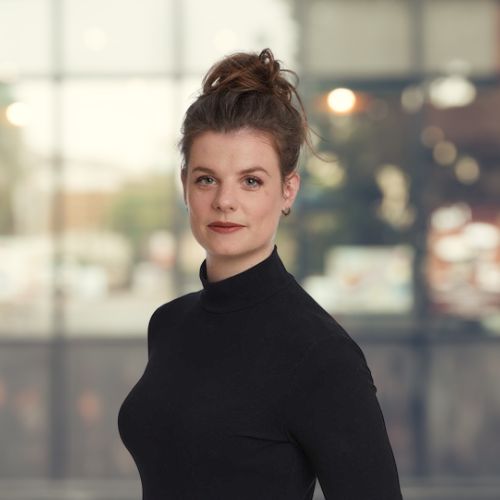
Laurie Hermans

“The energy transition is more than a technological transition”. As a social scientist – a cultural anthropologist, to be precise – Laurie Hermans is outnumbered at TNO. Even so, she feels right at home here.
“I’m interested in people and organisations, and what motivates them. Why do they act the way they do, why do they make certain choices? Social scientists are desperately needed at TNO. Technological innovation always has to do with changing and influencing behaviour; in the end, it’s people who to put a technological innovation into practice.
The transition from fossil to sustainable energy, for example, requires more than merely the development of new technology. It’s also about raising awareness of the changes needed from companies themselves and everyone who works in them. Alongside consultants and training companies which have been hired to set this greater awareness in motion, I’ve developed methods and forms of working which ensure that such training has a real impact and that the right organisational layers are involved.”
Irrational choices
“At TNO, I’m very much involved in sustainability, particularly the energy transition. A successful energy transition depends on the extent to which individuals and organisations are able and willing to change their behaviour. Hardly any organisations are against sustainability and most individuals are concerned about the climate.
Nevertheless, in addition to practical objections, there are also norms and patterns of thought which stand in the way of sustainable choices. Choices are often irrational, something which policymakers tend to lose sight of. I think it’s great to do research into this.”
Protein transition
“For example, we’re now doing research into sustainable food lifestyle choices; the protein transition. . We want to know how a person’s willingness to deal with food in a more sustainable way – a better balance between vegetable and animal proteins – is changing and how this is related to a person’s lifestyle. And how do you motivate people to look at food from a more sustainable perspective? To do so, you need to know what values are important to them and what their vision of the future is.
We do this by asking them to visualize, let’s say, their daily lives and eating habits. Suppose you have friends over to eat. What are you going to cook? What recipe will you follow? How is your seating arrangement at the table? If you know what values are important, you can take the human perspective into account as a policymaker.”
Passionate people
“Following my Bachelor’s degree in Cultural Anthropology and Master’s in Conflict Resolution & Governance, I took a traineeship with the European Agency for Safety and Health at Work (EU-OSHA) in Brussels. I had a great time there and learned a lot about European governance, but I missed the real fieldwork. At the time, I was in regular contact with TNO, EU-OSHA’s focal point in the Netherlands.
I knew TNO did applied research with societal impact. The fact that they also do social science research was new to me. This combination appealed to me immediately. Over the past five years, I took on different roles and projects within TNO. I feel like I’ve already got five or six great jobs behind me. I’m surrounded by passionate, motivated and ambitious people from different disciplines. That inspires me enormously.
I do not have a clear-cut vision of what the Netherlands will look like in ten- or twenty-years’ time. Although I do have a wish for the future. Cleaner air, for example, and less air traffic: the things we have been able to get used to during the time of corona. I would love to see sustainable lifestyle as the new normal. I’m curious about how we’ll look back on this in 2040.”
Amsterdam
Motion Building
Radarweg 60
1043 NT Amsterdam
-
Telefoon:+31 88 866 23 45
-
Email:[email protected]